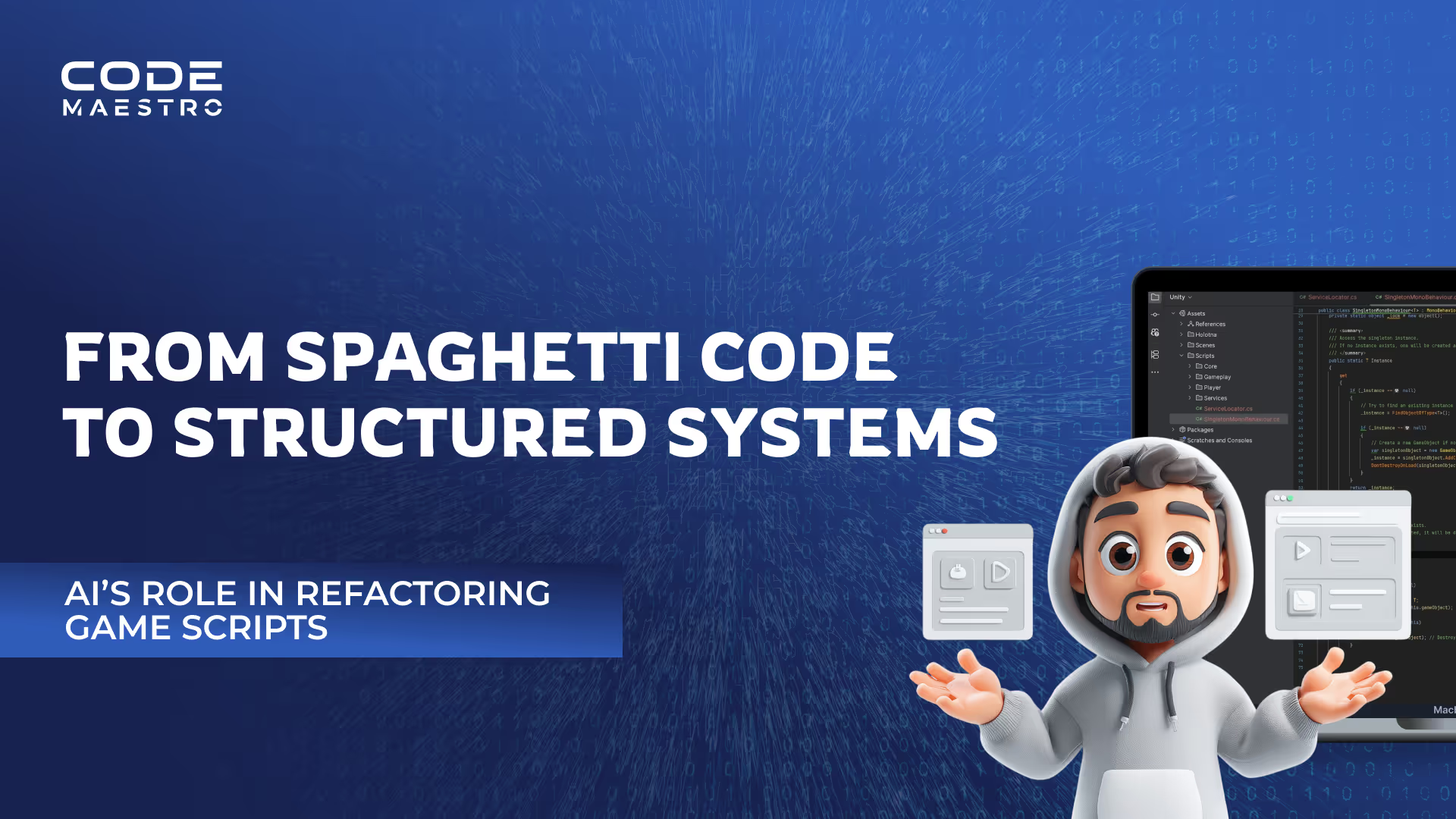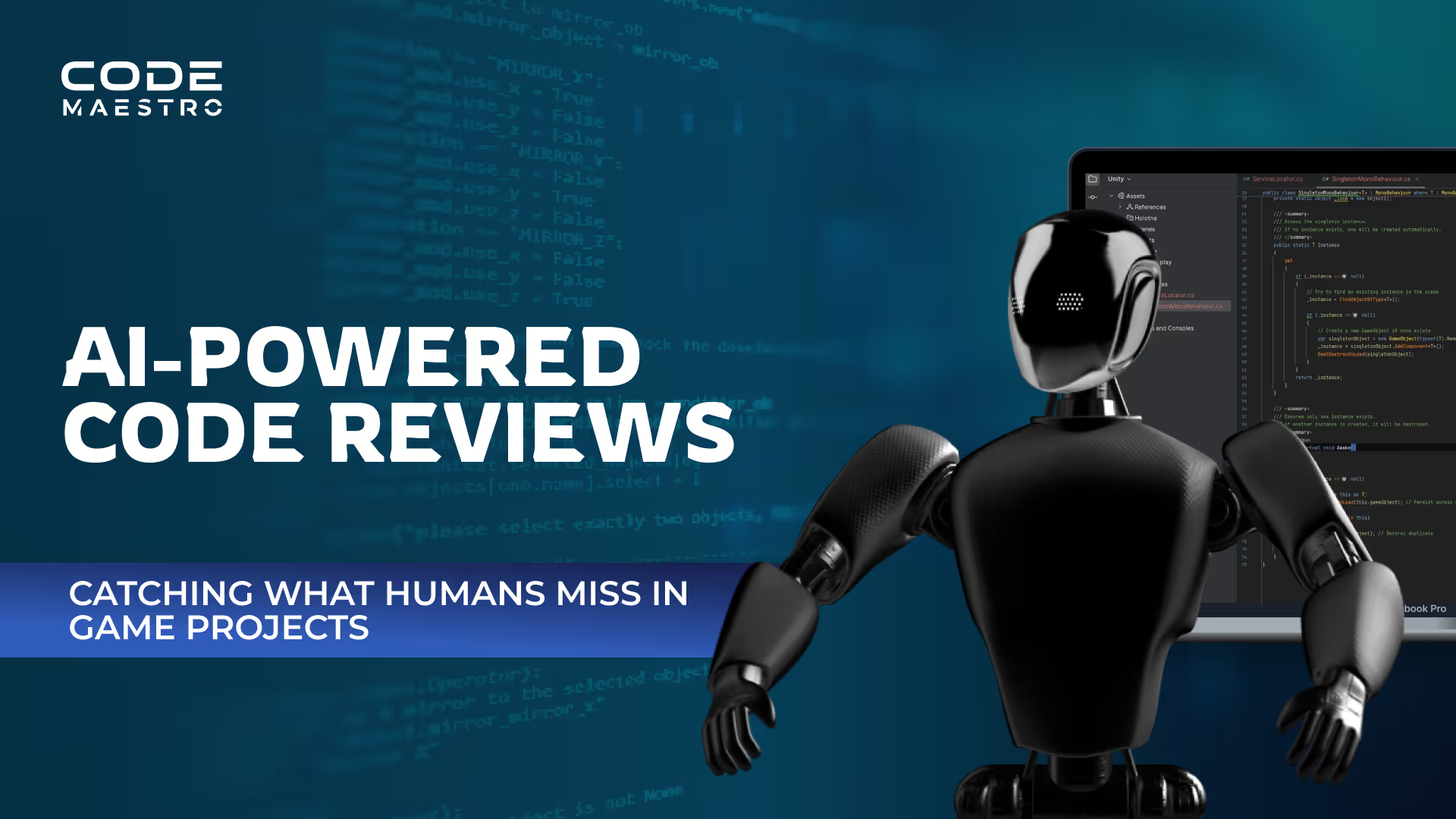Debug Like a Pro: How AI Predicts and Prevents Game Crashes
Table of Contents
The High Cost of Bugs and Crashes in Games
In game development, even a single crash can undo weeks of polish. A player loses progress right before a boss fight, or the screen freezes mid-session — and that’s often the last time the game gets launched. Frustration builds fast, and with it comes a wave of bad reviews, uninstalls, and support messages.
Technical problems don’t just interrupt gameplay. They affect trust, momentum, and the long tail of player retention. Especially in multiplayer titles or live games, one hidden bug can spread damage far beyond the original moment it shows up.
The Limitations of Traditional Debugging
Most teams still handle bugs reactively. Something breaks, logs are pulled, and the hunt begins. In the best case, the issue can be reproduced. In the worst, it vanishes until it hits someone else — again. This cycle burns time and often leads to rushed fixes that create new problems later.
It’s not that this approach doesn’t work — it just works too late. And it rarely catches the quiet issues that build up slowly: memory leaks, unreachable states, or input conflicts that only happen on specific devices.
How AI Predicts Issues
This is where AI changes the flow. It doesn’t wait for something to go wrong. Instead, it analyzes code while it's being written and flags sections that resemble known crash patterns. These aren’t theoretical red flags — they’re based on real bugs from real games.
The system notices fragile logic, unsafe access, forgotten fallback paths — the kind of things developers often miss when working fast or juggling multiple systems. AI sees risk where others might see just another working script.
Preventing Crashes Before They Exist
The biggest shift? You stop firefighting. You start preventing. AI-assisted tools point out code that isn’t technically broken yet — but probably will be. That might be an object that doesn’t get cleared, or a function that skips a check under a rare condition.
These systems help reduce the chance of:
- Memory allocation stacking up silently in background systems
- States with no clean exit causing input locks
- Loops that work 99% of the time — until a certain flag breaks timing
Instead of reacting after a report lands, you handle it during development, while the context is still fresh.
Reactive vs. Proactive Debugging
This shift from reaction to prevention makes a huge difference. In a traditional cycle, a bug needs to happen before it gets fixed. With AI in the loop, many of those bugs never happen at all.
It’s not about removing all errors — that’s impossible. But it is about catching the ones that matter early, when they’re still simple to fix.
A Few Real-World Cases
One example: a developer builds a scene transition system. Works great — until players mash the escape key halfway through and skip a key trigger. Another case: background objects accumulate, invisible to the player, until the framerate drops an hour into gameplay. These aren’t hypothetical — they’re common, and tools built with predictive analysis are now flagging them during development instead of after launch.
What Code Maestro Brings to the Table
Traditional debugging often comes too late — after the bug has shipped, the crash has happened, and players are already frustrated.
Code Maestro flips that script. It will bring AI-driven, context-aware analysis directly into your development flow, helping you detect risky code patterns, fragile logic, and architecture-level issues before they cause real problems.
By understanding your project’s structure, dependencies, and history, Code Maestro doesn't just react to bugs — it helps you prevent them, saving hours of firefighting and costly rework.
It's a smarter, earlier, and deeply integrated way to debug — exactly what fast-moving game teams need.
Experience predictive debugging with Code Maestro
With Code Maestro’s predictive debugging, you don’t wait for bugs to surface — you spot them as they form.
Its agents flag fragile logic, hidden risks, and architectural inconsistencies based on real crash patterns and project context.
From forgotten cleanups to unreachable states and race conditions, Code Maestro catches what traditional tools miss — and helps you fix it before it ever ships.



